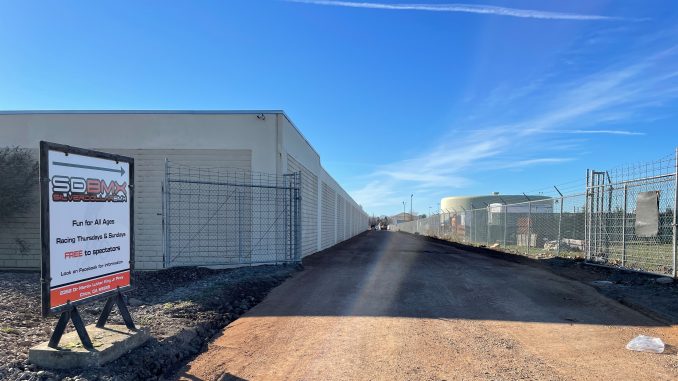
There is a sea change in store for the city of Chico and its approach to homelessness issues. On Friday (Jan. 14), a settlement agreement in the Warren v. City of Chico lawsuit was signed by a federal court judge and according to details therein, in addition to guidance for a new shelter site for the city’s unhoused population—construction of which is already underway—there are extensive modifications to policies with regards to the enforcement of anti-camping ordinances and regulations.
The settlement also directs the city of Chico to pay $650,000 in legal fees to Legal Services of Northern California (LSNC)—which represented the eight unhoused plaintiffs, who will be paid a collective total of $12,000 by the city. The civil case asserted that the city’s anti-camping ordinances and enforcement efforts denied the basic human rights of unhoused citizens and essentially made being homeless a crime.
The Chico City Council approved the settlement in closed session Jan. 4 (in a 7-0 vote), and the release of details of the agreement were withheld pending approval by Judge Morrison C. England, Jr., who has presided over the case since the complaint was filed in April. Those details became known Thursday (Jan. 13) evening when the settlement document was posted to public record, though England’s final approval came late Friday afternoon. Chico City Manager Mark Orme declined to comment Friday afternoon before the judge finalized the agreement, but LSNC attorney Cory Turner stepped out from behind the confidentiality agreement that has kept both sides mum for months to provide further details and praise the settlement.
“I think this is a victory for our whole community and for both sides, the city and us,” he said by phone Friday (Jan. 14). “With almost a year of hard work we were able to come together, especially in these last few months at the settlement conferences, and focus on some solutions that can make some real positive changes.
“While we and the city obviously came at this with different goals, we’ve come away with evidence-based solutions that will benefit the entire community,” he continued. “It’s best for everyone when everyone’s rights are respected, and we now have the infrastructure in place that complies with the law and respects the dignity of all people.”
Turner also said the agreement, which will be in effect for five years, marks a beginning rather than an ending. LSNC is charged with holding the city accountable for the responsibilities outlined in the settlement. He said this will be done on an informal basis with the city as much as possible, and that if issues persist they can be addressed by the judge who managed the settlement portion of the proceedings, Magistrate Judge Kendall J. Newman.
Though the city council voted unanimously to approve the settlement, Vice Mayor Kasey Reynolds sent a letter to Judge England claiming she never saw the finalized settlement document and expressing concern in some of the details, including the new public camping rules. The letter asks the judge, “Would it be possible to not sign this Settlement Agreement until all of the city council members can meet next Tuesday (Jan. 18) to fully review and discuss our concerns and or objections?” Reynolds’ letter was filed with the court Friday (Jan. 14), the same day the judge signed the settlement.
Mayor Andrew Coolidge, City Manager Mark Orme and a representative from Butte County will hold a press conference at City Hall on Jan. 18, at 11 a.m., to discuss the settlement.
Breaking ground at bike track
The idea to develop a shelter at the south Chico location that formerly housed Silver Dollar BMX bike racetrack has been green-then-red-lighted multiple times as the city has grappled with potential shelter locations over the last few years, and now work has commenced on the project as outlined in the settlement. Thus far, the city has allocated $600,000 in funds toward the new shelter—known as the Chico Emergency Non-Congregate Housing Site—while Butte County has contributed $1.7 million of federal COVID-relief funding.
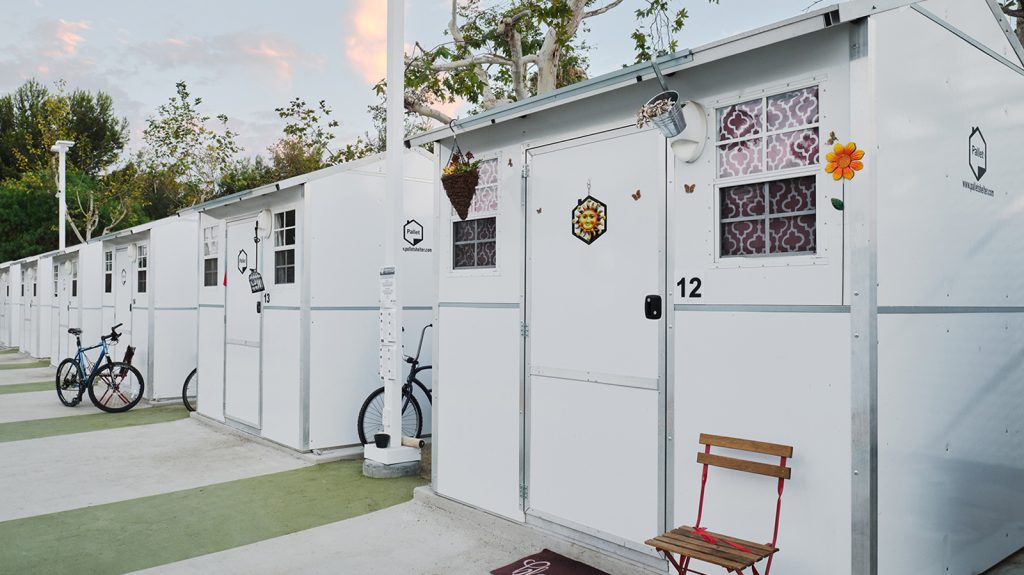
palletshelter.com)
Located at 2352 Martin Luther King Jr. Parkway—on property adjacent to the Torres Community Shelter—the site can accommodate up to 177 Pallet shelters. These small structures will be no less than 64 square feet each and co-housing will not be required, though it will be allowed for those who choose to live with spouses, family or other people.
The shelters will be organized into 50-unit pods. The site will be low-barrier and open around the clock, and each dwelling will have its own address and amenities like heating, air-conditioning, lockable doors and lighting. Additionally, three daily meals will be provided, as well as laundry service and shower facilities at least once weekly. There will be a minimum of three bathrooms and two hand-washing stations on-site for every 50 residents. Moreover, there will be common areas, space for clients to meet service providers, a dog run, smoking area and other amenities. The city will be responsible for meeting this criteria, as well as maintenance and trash removal.
“The site is a real game changer,” Turner said. “These individual shelters allow people security and protection from the weather. People can finally sleep safely and soundly at night, which is virtually impossible on the streets.”
Turner explained the benefits extend beyond immediate safety. “This allows people the space to do the things they need to every day instead of just focusing on survival and where to sleep. People with physical disabilities need space, and people with mental disabilities need some privacy to process issues like trauma … and homelessness is nothing but trauma, no matter how it begins.”
Eight of the Pallet shelters will be reserved for the plaintiffs in the Warren v. Chico suit for two months.
“I had one of our clients mention that being in a space like that helps take away the shame people feel because they’re on the street and that they’ll feel more comfortable reconnecting with family. Being in a space where someone’s dignity is realized has all kinds of positive effects that radiate outward from that single person.
A yet-to-be-named service provider will manage the site, and will also be responsible for setting up rules and procedures; both sides of the lawsuit will meet with this provider to review and approve these policies within 30 days of the settlement’s finalization and at least 14 days before the site’s opening.
New protections in place
Moving forward, enforcement of anti-camping laws and ordinances will be a multi-step process with several levels of oversight, rather than executed solely at the discretion of the city and its police department. To begin with, unhoused people in public places cannot be asked to relocate until the new shelter site opens.
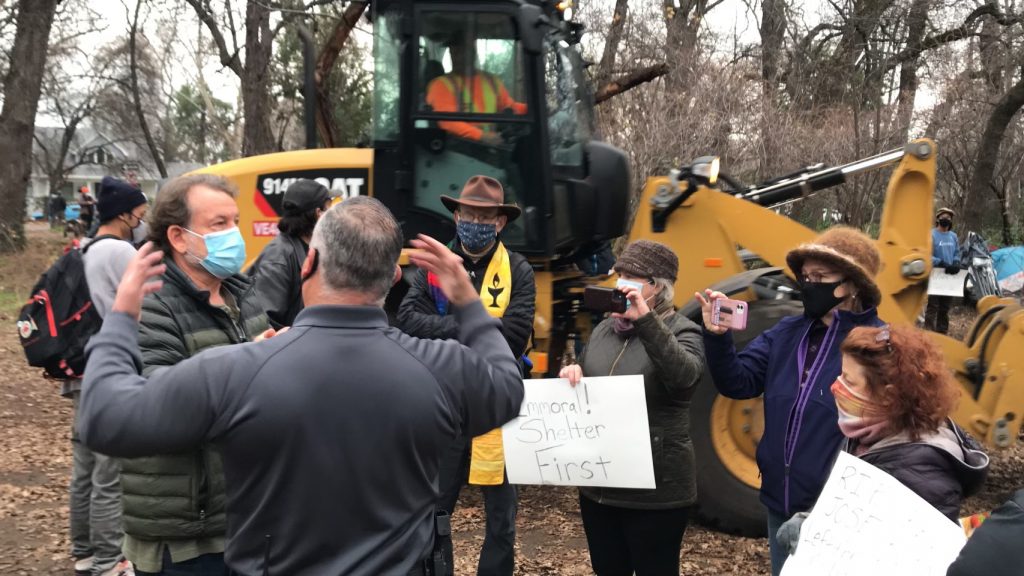
According to the settlement, only the Torres Community Shelter and the new non-congregate housing site qualify as immediate shelter and there must be vacant beds available at one or the other before people can be asked to relocate. Then, authorities must alert LSNC at least seven days before a 72-hour Illegal Encampment Notification can be issued. Outreach and Engagement (O&E) workers will then conduct an individual assessment to see if the shelters are appropriate for the individual, and to provide resource connections to the unhoused. If appropriate shelter is identified and the subject denies that shelter, police may cite or arrest them after the 72-hour eviction expires.
If no appropriate shelter is found, the city must provide a list of at least three public spaces within a half-mile where camping rules will not be enforced. Strict records of all these notices and interactions must be recorded and kept.
“With this agreement, the city is moving forward with how they approach enforcement in a way that puts solutions front and center,” Turner said. “In addition to ensuring that shelter is available, it means there’s a guaranteed period of outreach to each person, and that every single one will receive referrals to services and an evaluation to find appropriate shelter.”
The settlement also sets up rules to protect the property of unhoused individuals. A 72-hour notice must be delivered before property is removed, and that property must be held for 90 days no matter the value. Medication, medical equipment and necessities of life, like uncontaminated blankets, sleeping bags and tents, must be made available to their owners within one day. Items that are extremely soiled, potentially infected or infested, dangerous, contraband or illegal items are not subject to the property protection rules.
A compromise
Although Orme was complying with confidentiality agreements as of Friday afternoon, Councilman Sean Morgan made some comments about the settlement to the media recently. On KPAY’s Morning News radio show Jan. 5, he characterized the settlement as a compromise.
“This is going to make nobody happy,” Morgan said. “Some people are going to look at this and go, ‘Oh my gosh I can’t believe were doing all these things, this going to cost too much money.’ Some people are going to look at this and go, ‘Wait a minute this isn’t enough, we should have done a lot more.’
“Is it a happy medium? I don’t know. But, it’s what we agreed upon with the plaintiffs.”

Turner said he is, in fact, happy with the results, though he agrees both sides compromised a great deal. He was reticent to provide details of anything else the plaintiffs’ counsel vied for during the settlement sessions, and instead lauded the city for coming a long way to meet them in the middle.
“For our community to move forward and focus on an enforcement scheme that has shelter and services at its heart, that is legal under our Constitution and respects he rights and dignity of all citizens … it’s what compromise can be at its best.”
Turner also gave props to the Western Center on Law & Poverty, who has partnered with LSNC on the case since June, and to his colleague Sarah Steinheimer from LSNC’s Sacramento office, who served as lead counsel for the Plaintiffs. “She’s really the architect of this whole case,” he said.
But Turner saved his highest praise for Chico’s collective community of activists, advocates and service providers who’ve continued to stand up for the rights of the unhoused: “This issue is complicated and difficult and can be psychologically and emotionally draining,” he said. “It can really wear you down, but in Chico we have so many people that care about other people that it really gives me a lot of hope.”

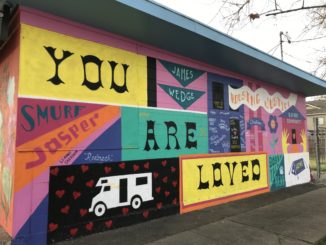

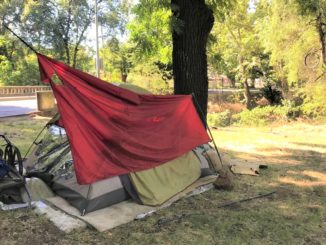
Huge props to the eight people who stood up and fought for human rights! Well done! Hopefully other cities won’t have to be sued before making some positive changes to their policies.